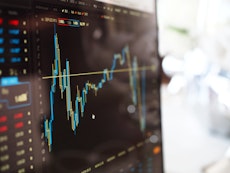What Is Proprietary Trading?
All products and services featured are independently selected by WikiJob. When you register or purchase through links on this page, we may earn a commission.
- A list of the Top Proprietary Trading Firms for April 2024:
- Description of the Best Proprietary Trading Firms for April 2024
- What Is Proprietary Trading?
- Proprietary Trading Vs. Other Trading Industries
- Working In a Proprietary Trading Firm
- Job Roles and Where to Find Them
- Trader Career Path
- Getting a Job in Proprietary Trading
- Tips for Getting Noticed
- Interview Process and Questions
empty
empty
- Things to Consider
- Frequently Asked Questions
- Final Thoughts
A list of the Top Proprietary Trading Firms for April 2024:
- Akuna Capital
- Bluefin Trading
- Bright Trading
- DRW
- First New York
- Grace Hall Trading
- Hudson River Trading
- Jane Street Trading
- Jump Trading
- Prime Trading
- Susquehanna (SIG)
- Tower Research Capital
- Virtu Financial
Description of the Best Proprietary Trading Firms for April 2024
There are three types of prop trading firms – the terrible, the ok and the good.
The terrible firms will ask you to pay thousands of dollars for your own 'training' and a fee to use their resources. You will receive no basic salary, but you will get over 50% of any profit. However, it could be months or years before you make any substantial trades.
These types of firms are not designed for anyone who wants a serious career in proprietary trading.
The ok firms will give you some training, but charge a fee to use their resources. You will essentially be paying to work there. You will receive no basic salary, but a large percentage of any profits.
The good firms will provide you with training, salary, benefits and career development.
These firms usually recruit at universities. Yes, you receive a much smaller percentage of the profits, but the job is stable, and you will not be exploited.
Here are some of the top proprietary trading firms:
1. Akuna Capital
Based in: Chicago, Boston, Sydney, Hong Kong and Shanghai
Founded in 2011, Akuna Capital is a young, small firm that values tech and team concepts.
Akuna has excellent learning experiences, but as it is moving through a period of fast growth, some things are a bit chaotic.
Its offices come with gyms, and nutritional breakfasts and snacks are also provided.
2. Bluefin Trading
Based in: New York, Chicago, London and Hong Kong
Multi-strategy trading focused on exchange-traded derivative products. It has excellent bonus schemes and incentives to encourage healthy living.
3. Bright Trading
Based in: Remote opportunities
Established in 1992, Bright Trading employs hundreds of independent traders across the US. It focuses on proprietary stock trading.
Employees benefit from being able to work from any location in the world.
4. DRW
Based in: Chicago, New York, Montreal, Tel Aviv, Austin, Singapore and Amsterdam
DRW is a technology-driven firm that trades using a variety of models. It is a truly global network with locations all over the world.
As an employee, you'll receive access to on-site yoga, a subsidized gym membership, healthy breakfasts and lunches, as well as a fully stocked fridge.
5. First New York
Based in: London and New York
Established in 1986, First New York is a multi-strategy firm that has been the preferred destination for many portfolio managers. For more experienced traders, First New York provides resources and capital to unleash their strategies.
6. Grace Hall Trading
Based in: Chicago and Charlotte
Grace Hall Trading specializes in transactional arbitrage, volatility arbitrage and event-driven trading. In 2017 it joined Simplex Investments, allowing the company to take advantage of being part of a bigger organization, while still remaining agile.
7. Hudson River Trading
Based in: New York, Chicago, London, Shanghai, Singapore, Dublin and Austin
Hudson River Trading (HRT) describes itself as comprising mathematicians, computer scientists, engineers, physicists and statisticians. It employs 190 people globally and prides itself on being a voice for fair and open markets.
Besides merit-based rewards, HRT offers an on-site gym, chef-prepared meals and a fully stocked beer fridge.
8. Jane Street Trading
Based in: New York, Chicago, London and Tokyo
Jane Street Trading was founded in 2000 and is a quantitative proprietary trading firm.
Its benefits package not only includes meals and on-site gyms but 90% reimbursement for educational courses and materials, equipped mothers’ rooms and an additional week off to celebrate a new marriage or domestic partnership.
9. Jump Trading
Based in: Chicago, New York, London, Singapore, Shanghai and Amsterdam
With 500 traders employed globally, Jump Trading focuses on futures, options and equities. Its technology is best in class, and its philosophy is to reward based on merit, not position or title.
10. Prime Trading
Based in: Chicago and New York
Prime Trading specializes in trading futures and options in treasuries, grains, softs, energies and metals. It is a no-fuss firm, with offices only holding the necessary resources – no gyms, chefs or games room. They do allow flexible working locations.
This particular firm requires you to pay for resources used, so it is better suited to independent traders.
11. Susquehanna (SIG)
Based in: Chicago
SIG is a quantitative trading firm that has built all of its technology from scratch, and it has one of the best trader-development programs. The company also boasts impressive benefits and social programs.
12. Tower Research Capital
Based in: Chicago, London, New York, Charleston, Singapore and London
Tower Research teams are independent of each other, so they can enjoy autonomy yet share resources. The company was founded in 1998 and has built some of the most sophisticated electronic trading platforms in the world.
13. Virtu Financial
Based in: New York, Austin, Dublin and Singapore
Virtu is the leading global market maker. It offers securities in over 230 exchanges, markets and dark pools. In 2020, it was named number one Leading Global EMS in The Trade’s Execution Management Systems Survey.
Its culture is said to combine the speed and creativity of a start-up with the discipline and stability of an established financial firm.
What Is Proprietary Trading?
Proprietary trading, also known as ‘prop trading’, is the buying and selling of securities using a firm's own money.
The trading may be directional, where the security's price goes up. Or the trading may be market-making. The latter is the most common.
Prop trading strategies may include merger arbitrage, index arbitrage, global-macro trading and volatility arbitrage.
Typical investments can include – but are not limited to – stocks, bonds, commodities and currencies.
Prop trading is considered the most merit-based industry within the finance sector. The money used in the trades belongs solely to that firm, so any profit is theirs to keep. This offers a higher earning potential.
Prop trading exists at:
- Hedge funds
- Asset-management firms
- Commodities companies
- Small or independent trading firms
After the crash of 2008, proprietary trading was removed from all commercial banks, as it was one of the leading causes of the global recession. The banks were using money they considered to be theirs.
When the market crashed and all their money was lost, it transpired that they had been trading with money they had no right to use.
The Dodd-Frank Wall Street Reform and Consumer Protection Act, brought into effect in 2010, now limits the amount of risk a financial institution can take (the Volcker Rule).
Though the bill was passed in 2010, banks are still in the process of implementing the removal of their prop trading investments. In 2016, several banks asked for an extension to exit all illiquid investments.
As some banks may still list prop trading as one of their functions, it is essential to remember the Volcker Rule when starting your job search.
You should not apply for any prop trading roles in commercial banks. You should also be aware of the details of the Act so you have a personal understanding of when an investment becomes too much of a risk.

Proprietary Trading Vs. Other Trading Industries
Proprietary trading is the preferred choice for graduates, over hedge funds or regular trading, for several reasons:
First, the technology available is some of the best in the world, allowing traders to make the best possible decisions in the shortest amount of time. As most of the trading is market-making, this gives firms a competitive edge – meaning higher profit margins.
They also operate with smaller amounts of capital and in smaller or niche markets – essentially big fish in a small pond.
In comparison, hedge funds raise capital from external investors and operate in much broader markets. Regular trading also works in broader markets, with much more capital. But they also serve more clients that require pay-outs.
Second, as prop trading works only with the firm's money, you take home a much higher percentage of the profit. You also don't have any fallout from unhappy clients.
Third, prop trading firms are usually smaller in size, so there is less office politics and fewer regulations. Regular trading is heavily regulated, and there is a lot of office politics and hierarchies.
Finally, career growth and development happens a lot faster within proprietary trading. Just how quickly depends on your abilities, but the process is faster than other trading industries.
Working In a Proprietary Trading Firm
Cultures and values differ between each firm. But as an industry average, working hours average at around 50 hours per week.
However, your working days are not simply nine to five. The busiest time for a trader is when markets open and close.
If you are operating in a European market, you need to be awake when they open:
- For those living in New York, that's a time difference of plus five to seven hours
- The Middle East is ahead nine hours
- Asia 11 hours or more
Your working day could be over 12 hours, with long breaks in the afternoon and late nights.
Job Roles and Where to Find Them
As well as the typical back-of-house roles such as compliance, finance and HR, there are three technical roles for proprietary trading:
-
Trader – This will be advertised as either a discretionary trader or a quantitative trader. Both roles spend their working days buying and selling, and managing risk; a discretionary trader will take a more intuitive approach and spend more time buying and selling. A quantitative trader follows software and algorithms and will spend a fair amount of the working week brainstorming with other traders.
-
Quantitative researcher – This role creates the mathematical models for the trading statistics and algorithms.
-
Developer – Responsible for writing programs, implementing the researcher's models and maintaining the program coding.
As a rule, recruitment for prop trading jobs begins in universities.
Firms will attend careers fairs, liaise with your program leader or advertise recruitment days through your university’s careers web page.
It can take time to build your portfolio, so you may have to budget for a while; applicants with liabilities – family, children, mortgage – are seen as a risky investment.
If you are not at university and are looking to change firms, job roles or enter trading university, you’ll find proprietary-trading positions posted on many websites:
-
LinkedIn is an excellent resource for finding jobs and for networking. It is continuously growing in popularity, with more firms creating business pages and advertising their vacancies on the platform.
-
Indeed posts new job roles daily. It also has company reviews and information about salary expectations and standards across the US.
-
Glassdoor is similar to Indeed. It features company reviews, salary comparisons and interview scenarios and techniques.
-
Companies also post current vacancies on their websites, as well as details of internships and campus recruitment. If there is a particular firm that you want to work for, keep checking their site.
Trader Career Path
Within the trader roles, progression is as follows:
- Clerk or assistant trader
- Junior trader – grad students begin in this role
- Senior trader
- Partner
For a junior trader, a full financial package will be anything from $100,000 to $200,000 per year. Your bonuses will usually be calculated at 50% to 100% of your base salary.
After completing your first year, you can expect $200,000 to $500,000 per year.
The senior traders earn between $500,000 and $1m per year, with the partners making over $1m.
As you progress, your base salary may not increase that much, but your bonuses and benefits will.
These figures may seem similar to those working in investment banking, but role progression is faster, and prop trading usually deals in cash so you will receive more of the money.

Getting a Job in Proprietary Trading
-
Education – You will usually need a degree or master’s in math, physics, statistics, computer science or engineering. Firms recruit from the top universities. However, if a lower-tier institute has an excellent tech program, they may consider those applications.
-
Experience – As a junior trader position is likely to be your first official job role after university, there is minimal opportunity for experience. Recruiters will look for internship experience in asset management or trading. Trading from your own account also counts as experience.
-
Qualities – Trading roles are notorious for being demanding and high-pressured. You need to think on your feet, stay calm under immense pressure, correct your mistakes quickly, have thick skin and have a desire to succeed.
All that being said, raw talent trumps top grades from a prestigious university.
If you can demonstrate exceptional grit, determination and an ongoing desire to develop yourself, someone with a degree in philosophy could land a proprietary-trading job.
Tips for Getting Noticed
Step 1. Trade your own account
Learn what works and what doesn't, practice trading methods, see where your strengths and weaknesses lie.
Step 2. Get internships at any trading firm
The goal is to gain experience with software programs, daily responsibilities and to learn as much as you can in an active environment.
Step 3. Learn mental math
Speed tests are excellent for testing your ability. Knowing some tricks and concepts will help in your interview because you will be asked to demonstrate your mental math ability. Bayes’ Theorem is a must-learn.
Step 4. Do your homework
Familiarize yourself with the programming and other techniques you will be using.
Step 5. Learn C/C++ and Python
These are the main programming languages used in prop trading.
Step 6. Network
Do this any way you can, for example through LinkedIn or at alumni events. Wherever you see an appropriate opportunity to build your contacts, do so.
Step 7. Always grow and develop
Reading, in general, is good for you, but reading trading books and biographies will teach you a lot.
Step 8. Start a blog focused on prop trading
This demonstrates your understanding and interest in the industry. If your blog is good enough, it could also position you as an industry expert.
Basically, show that you really want a job in prop trading.
Interview Process and Questions
If you manage to secure yourself an interview, you need to be prepared for an intense one.
The number one rule to remember is that if you claim to know something, the interviewers will ask you about it.
Only claim to know about something if you can confidently demonstrate your knowledge. Do not write on your application that you are an expert at global macro-trading if you have never actually done it.
The interview will consist of many questions designed to test your knowledge, ability and behavior. Here are some examples:
Mathematical Questions
You could be asked to solve a statistical puzzle, similar to the Monty Hall questions, or a direct math question such as:
What is 65 x 34?
You may also be asked a dice question such as:
What is the probability we will roll a prime number?
Market-making questions test your reaction to new information and your process to solve the new problem.
If faced with a problem-solving question, take your time and talk everything out. Ask for more information if you need it, but make sure you ask intelligent questions.
Prop trading firm Jane Street has a document explaining all the mathematical topics you are expected to know.
General Interview Questions
The most common questions asked in an interview are: Why do you want to work for company A? and: Why do you want job role B?
The interviewers will more than likely ask you why you want to work for the firm and why you want to be a prop trader.
When preparing your answers, consider what you like about the firm's culture, its dedication to employees, and approach to personal growth and development. What interests you about being a proprietary trader, other than the potential to make lots of money?
Other typical questions to expect are:
- Are you able to live without a fixed salary?
- How long are you willing to give yourself to succeed?
- What is your trading approach to markets?
Those interviewing for developer and researcher roles may also be asked to string together some code or analyze a case study.
An example question based on an interview for a DRW graduate position is:
In your contract, you have a clause saying that if you use LinkedIn, you will have your hands removed. What would be the price you would request to sign, and the opportunity cost of not using LinkedIn?
One acceptable way of answering could be:
I need my hands to work as a prop trader, but LinkedIn is an essential business tool. Without hands, I would not be able to work, making it difficult to pay my medical bills. I would attempt to project my future cash flow over a 15-year period and then discount it by a 7% risk-free rate.
This would give me a number in the region of $20–$25m.
Things to Consider
For those who have a real passion for trading, and who have the correct skillset, prop trading can be a very lucrative career.
You do, however, need to take into consideration that the job does not have many exit opportunities.
The daily tasks and resources you use are exclusive to prop trading. You have some practical, transferable skills – working under pressure, decision-making, discipline. But all your learning is around that industry alone.
If you decide that trading is not for you, and you still need a high salary and want to remain in the business industry, there is the option to take an MBA.
They take on average two years to complete, but the starting salary and positions available for an MBA graduate are better than for someone without the qualification. It will give you a broader knowledge base and open up more opportunities.
You also need to be realistic that if you do make losses, and are fired because of that, then the chances of being hired by another firm are exceptionally low.
The work is also very demanding and highly stressful. While you establish yourself, there will be very little time for anything else.
A number of the top prop trading firms organize social events – you will be expected to attend, especially at the start of your career.
Frequently Asked Questions
Proprietary trading refers to the practice of financial firms using their own capital to trade financial instruments, such as stocks, options and futures, with the aim of generating profits.
Proprietary traders use various trading strategies and techniques to identify and exploit market opportunities.
A proprietary trading firm is a financial institution that engages in proprietary trading activities. These firms usually employ professional traders who use the firm's capital to trade financial instruments. Proprietary trading firms can be independent entities or can be owned by investment banks, hedge funds or other financial institutions.
A proprietary trading platform is a software application that proprietary trading firms use to execute trades and manage their trading activities.
These platforms are typically designed to meet the specific needs of proprietary traders, providing them with advanced charting tools, order management systems and real-time market data.
The proprietary trading industry has been facing regulatory and market challenges in recent years, leading some to speculate that the industry is in decline.
However, many proprietary trading firms continue to operate profitably, using innovative trading strategies and technologies to stay ahead of the competition.
Proprietary trading is carried out by professional traders who are employed by proprietary trading firms. These traders typically have extensive experience in trading financial instruments and use a variety of quantitative and technical analysis tools to identify trading opportunities.
Many forex trading firms have proprietary trading platforms that are designed specifically for forex trading.
Some of the top forex trading firms with proprietary trading platforms include IG, Saxo Bank and CMC Markets.
These platforms offer advanced charting tools, real-time market data and customizable trading interfaces to help traders execute their strategies more effectively.
Proprietary trading has the potential to generate high profits, but the amount of money that one can make varies widely depending on many factors, including the trader's skill level, the size of the account they are trading, the strategies employed and the volatility of the markets.
In general, successful proprietary traders can earn salaries and bonuses that are significantly higher than those of traditional traders, with some traders earning millions of dollars per year.
However, it's important to note that proprietary trading involves a high level of risk, and not all traders are profitable.
Proprietary trading firms use their own money to trade financial instruments in the markets.
This is in contrast to traditional trading, where traders use clients' money to make trades.
Proprietary trading firms typically have large amounts of capital at their disposal, and they use this capital to generate profits by taking positions in various markets.
Some proprietary trading firms also raise funds from outside investors, but the majority of the capital used for proprietary trading comes from the firm's own reserves.
Proprietary trading firms play an important role in the financial markets by providing liquidity and generating profits.
By taking positions in various markets, these firms help to keep prices stable and ensure that buyers and sellers can always find a counterparty to trade with.
Additionally, the profits generated by proprietary trading firms can be reinvested into the economy, creating jobs and fueling economic growth.
Some critics argue that proprietary trading can lead to excessive risk-taking and market manipulation, but proponents of the practice argue that it serves an important economic function.
When looking for a proprietary trading firm to join, there are several factors to consider. First and foremost, traders should look for firms that have a solid track record of profitability and a good reputation in the industry.
Traders should also consider the firm's trading strategies and risk management practices, as well as the level of support and training provided to traders.
Other factors to consider include the firm's capital requirements, fee structure and the opportunities for advancement within the firm.
Proprietary trading firms typically use brokers to execute their trades in the markets.
When choosing a broker, firms should look for a broker that offers fast and reliable trade execution, competitive pricing and access to a wide range of markets and instruments.
Additionally, firms should look for brokers that offer advanced trading tools and technology, such as algorithmic trading platforms and customizable order types.
Some of the top brokers for proprietary trading include Interactive Brokers, TradeStation and Lightspeed Trading.
It's difficult to determine the world's largest proprietary trading firm, as many firms are privately held and do not disclose detailed financial information.
However, some of the largest proprietary trading firms in the world include Jane Street, Susquehanna International Group and Optiver.
These firms have billions of dollars in capital and trade a wide range of financial instruments, including stocks, options, futures and cryptocurrencies.
Final Thoughts
To summarize, the advantages of becoming a proprietary trader are:
- The pay is well above average and can be earned quickly compared to other trading industries
- Career progression is quick
- The work is interesting
- The culture and lifestyle of a prop trading firm are more relaxed than others
The disadvantages are:
- You don't build anything tangible, so you cannot demonstrate your success with evidence
- You have to perform well to stay in the industry
- It is easy to get scammed, especially if you are not taking the university recruitment route
- Exit opportunities are not great if you decide this is not the career for you
It is a career that you need to be fully confident about as it will take a lot of time and hard work. There is very little room for error, and any mistake could cost millions of dollars. However, the financial rewards are exceptional.
WikiJob does not provide tax, investment, or financial services and advice. The information is being presented without consideration of the investment objectives, risk tolerance, or financial circumstances of any specific investor and might not be suitable for all investors. Past performance is not indicative of future results. Investing involves risk including the possible loss of principal.







